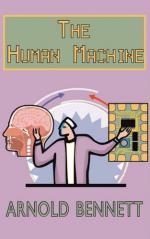Another point. I have tried to show that, if the reason is put in command of the feelings, it is impossible to assume an attitude of blame towards any person whatsoever for any act whatsoever. The habit of blaming must depart absolutely. It is no argument against this statement that it involves anarchy and the demolition of society. Even if it did (which emphatically it does not), that would not affect its truth. All great truths have been assailed on the ground that to accept them meant the end of everything. As if that mattered! As I make no claim to be the discoverer of this truth I have no hesitation in announcing it to be one of the most important truths that the world has yet to learn. However, the real reason why many people object to this truth is not because they think it involves the utter demolition of society (fear of the utter demolition of society never stopped any one from doing or believing anything, and never will), but because they say to themselves that if they can’t blame they can’t praise. And they do so like praising! If they are so desperately fond of praising, it is a pity that they don’t praise a little more! There can be no doubt that the average man blames much more than he praises. His instinct is to blame. If he is satisfied he says nothing; if he is not, he most illogically kicks up a row. So that even if the suppression of blame involved the suppression of praise the change would certainly be a change for the better. But I can perceive no reason why the suppression of blame should involve the suppression of praise. On the contrary, I think that the habit of praising should be fostered. (I do not suggest the occasional use of trowels, but the regular use of salt-spoons.) Anyhow, the triumph of the brain over the natural instincts (in an ideally organised man the brain and the natural instincts will never have even a tiff) always means the ultimate triumph of kindness.




